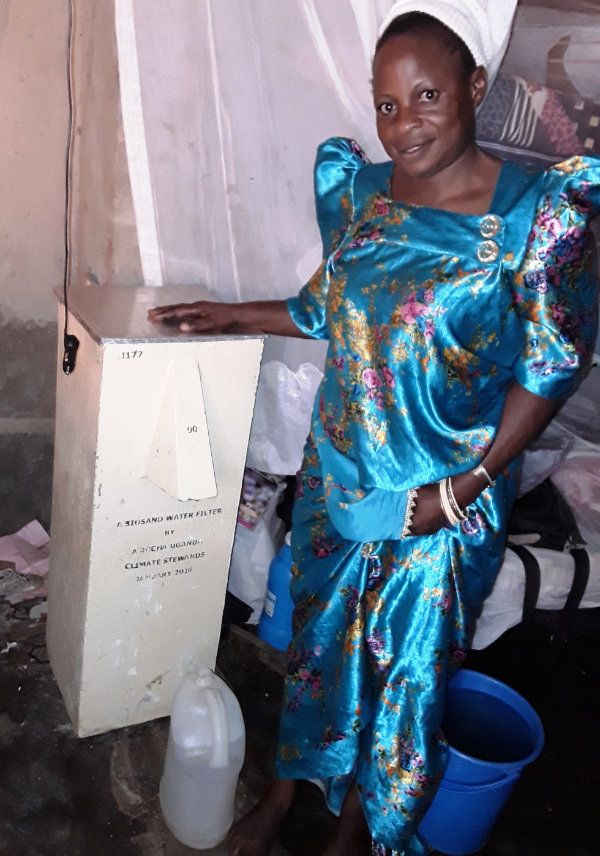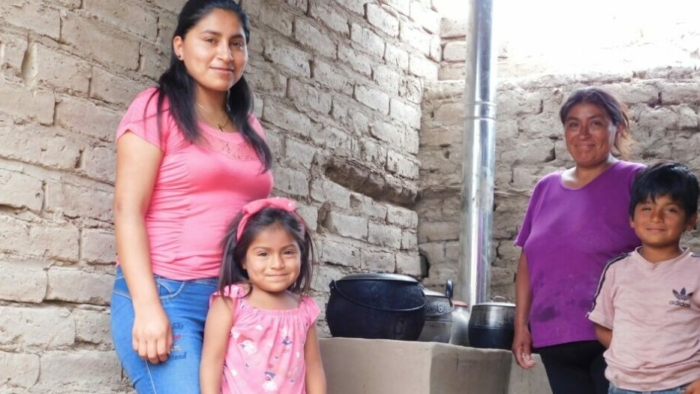The whole community of creation–from people to habitats to wildlife–are already suffering the effects of a warming climate, stirring more and more people to take a hard look at their own carbon emissions. For many organizations, companies, and individuals striving to make up for their emissions, carbon-offsetting has become a popular and attractive solution. Offsetting is a way to compensate for unavoidable carbon emissions by supporting a project that removes an equivalent amount of carbon dioxide from the atmosphere.
Unfortunately, large-scale carbon offsetting projects can go very, very wrong. Companies may be murky about how much money actually goes towards offsetting or if the project actually has an impact on atmospheric greenhouse gasses. The most popular carbon mitigation project is planting or protecting swaths of trees, and this can be fraught with problems: some projects plant trees that are not ecologically appropriate, fail to take care of seedlings once they are planted, or even abuse indigenous land rights. Other projects may use technology that ends up discarded and unused.
Carbon offsetting has exploded in popularity as companies are listening to the consumer demand to reduce our collective carbon footprint: one in five of the world’s 2,000 largest public companies have now committed to net zero emissions.1 However, two thirds of these rely on offsets rather than emission reductions, even though reducing emissions is a critical component of achieving carbon neutrality.2 At the COP27 climate conference, U.N. experts released a report denouncing many of these corporate net zero pledges as a harmful form of greenwashing.3 Even if the large-scale offset projects needed to support these claims worked, our annual emissions far surpass the earth’s capacity to sequester carbon.4 Experts agree that offsets are a necessary stepping stone to getting to net zero emissions at a global scale, but they are not sufficient on their own.5
For these reasons, Climate Stewards USA is firm on the need to reduce carbon emissions first and foremost. The carbon calculator tool helps individuals and organizations see how our everyday decisions–from food, to travel, to home energy usage–can be modified to lower emissions as much as possible. The unfortunate reality, though, is that most of us live in a world that remains dependent on fossil fuel infrastructure. Carbon offsetting is a way to acknowledge the harm done by our lifestyles and consumption habits, particularly in the Global North. To this end, Climate Stewards USA offers a unique and holistic approach.
Climate Stewards USA partners with well-designed and carefully-monitored tree planting projects where appropriate, but their community-based projects go beyond planting trees–and even beyond carbon offsets. In Peru, Climate Stewards partners with A Rocha Peru to provide fuel-efficient cookstoves to low-income families living in isolated areas. When using these cookstoves, families need less firewood and therefore emit less carbon. Based on survey data, we know that each stove will save 2.65 tonnes of CO₂ per year, a reduction of about 50%. Beyond the carbon savings, each cookstove gives families a safer, cleaner, and more efficient way to cook by lowering health risks from burns or smoke inhalation. Families spend less time and money gathering firewood or buying charcoal, which also reduces pressure on local forests that A Rocha Peru is working to restore.
An essential component of Climate Stewards USA’s projects is their close relationship with their project partners, several of whom are A Rocha organizations. Because the projects are on a small scale, there is accountability and an incredible attention to detail, making sure that the carbon offset claims are accurate and that they benefit communities. For instance, A Rocha Uganda distributes biosand water filters that reduce emissions by purifying water without the need to boil it over a fire. Before receiving a filter, families participate in a two-day training course where they build their filter and are taught how to use/maintain it and how to improve household hygiene. Later on, members of the community act as “Filter Buddies” who support local households, advising them and dealing with problems as they arise. Rather than imposing a project without a community’s support, Climate Stewards has a direct relationship with the folks on the ground who are generating the offsets.

In addition, the cost of Climate Stewards USA’s carbon is higher than many other offsetting ventures. This is because the offset that people pay includes risk assessment and a buffer for things that could go wrong such as trees being killed by drought, fires, termite attacks, waterlogging, grazing by livestock, etc. The conservative calculations ensure that the projects deliver at least as much CO₂ savings as promised. Transparent annual reports also break down how much money is being spent on different categories. There are for-profit offsetting organizations, but Climate Stewards USA is not one of them.
When done poorly, carbon offsetting functions as a sort of “indulgence” whereby we assuage our guilt with a donation while maintaining our carbon-intensive lifestyle. Like waiting to eat dessert until after you’ve finished your veggies, it is only appropriate to offset after you have taken all possible measures to reduce your carbon footprint. When done well, offsetting is an opportunity to account for the harm we’ve done. Climate Stewards is intentional about supporting projects in under-resourced areas in the Global South, so that while taking responsibility for our emissions, we also benefit the communities who suffer the effects of climate change first and worst.
Alongside reducing and offsetting, one of the most impactful things you can do to combat climate change is talk about it! You do not need to be an expert in climate science in order to be a climate steward. Find more resources on climate change impacts, what people are doing, and how you can join here.
——————————————
- Jack Graham, “Net-zero emissions targets adopted by one-fifth of world’s largest companies” (Reuters, 2021) https://www.reuters.com/article/us-global-climate-carbon-business-trfn/net-zero-emissions-targets-adopted-by-one-fifth-of-worlds-largest-companies-idUSKBN2BF2ZX
- Jack Arnold and Perrine Toledano, “Corporate Net-Zero Pledges: The Bad and the Ugly” (Columbia Center on Sustainable Investment, 2021) https://ccsi.columbia.edu/news/corporate-net-zero-pledges-bad-and-ugly
- Gloria Dickie and Simon Jessop, “COP27 – Corporate climate pledges rife with greenwashing – U.N. expert group” (Reuters, 2022) https://www.reuters.com/business/cop/un-experts-cop27-corporate-climate-pledges-rife-with-greenwashing-2022-11-08/
- Kelly Levin, “How Effective Is Land At Removing Carbon Pollution? The IPCC Weighs In” (World Resources Institute, 2019) https://www.wri.org/insights/how-effective-land-removing-carbon-pollution-ipcc-weighs
- University of Oxford Net Zero, “Principles for making a Net Zero Commitment” https://netzeroclimate.org/policies-for-net-zero/net-zero-principles/









Add a Comment